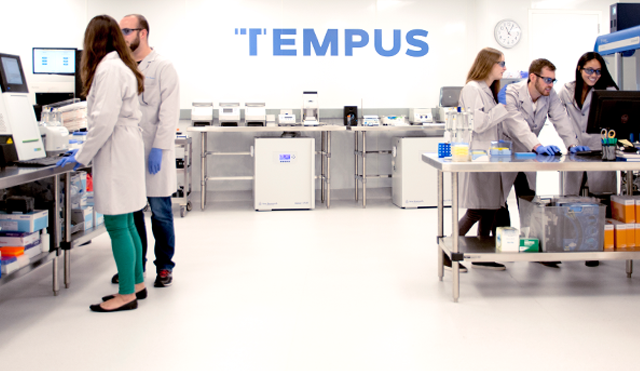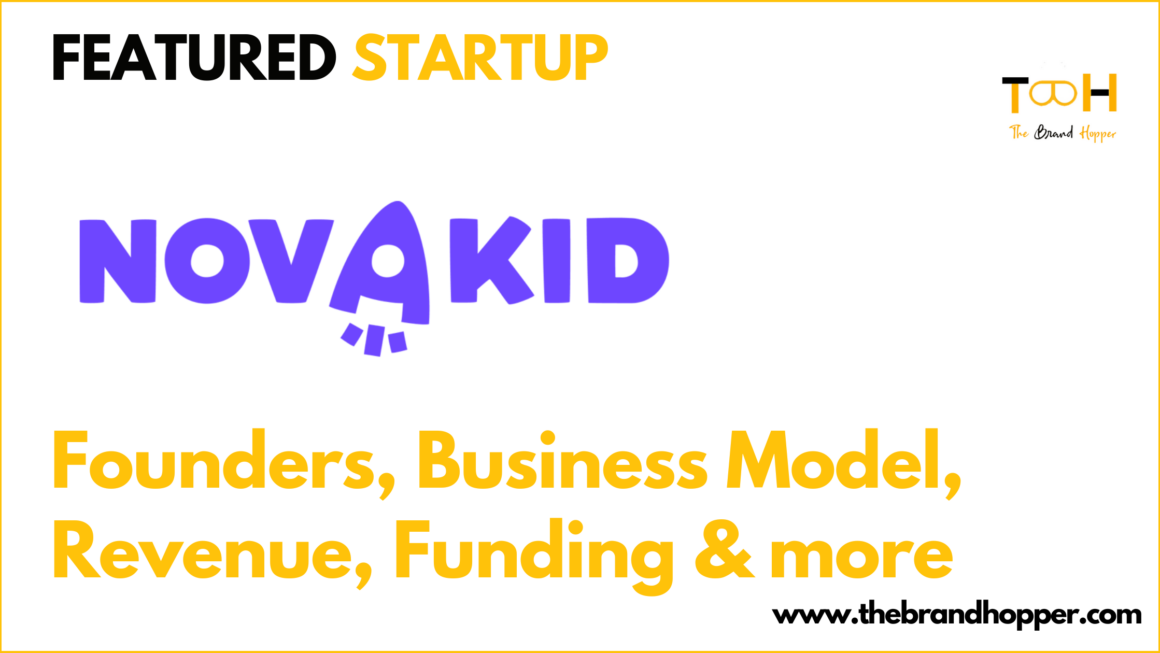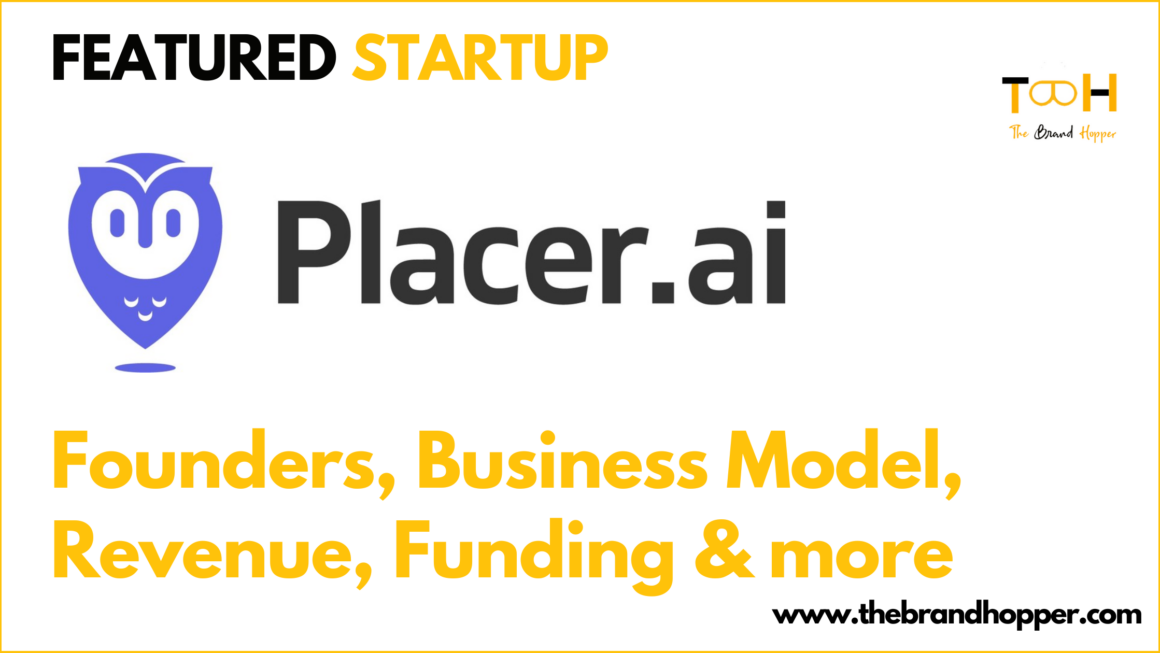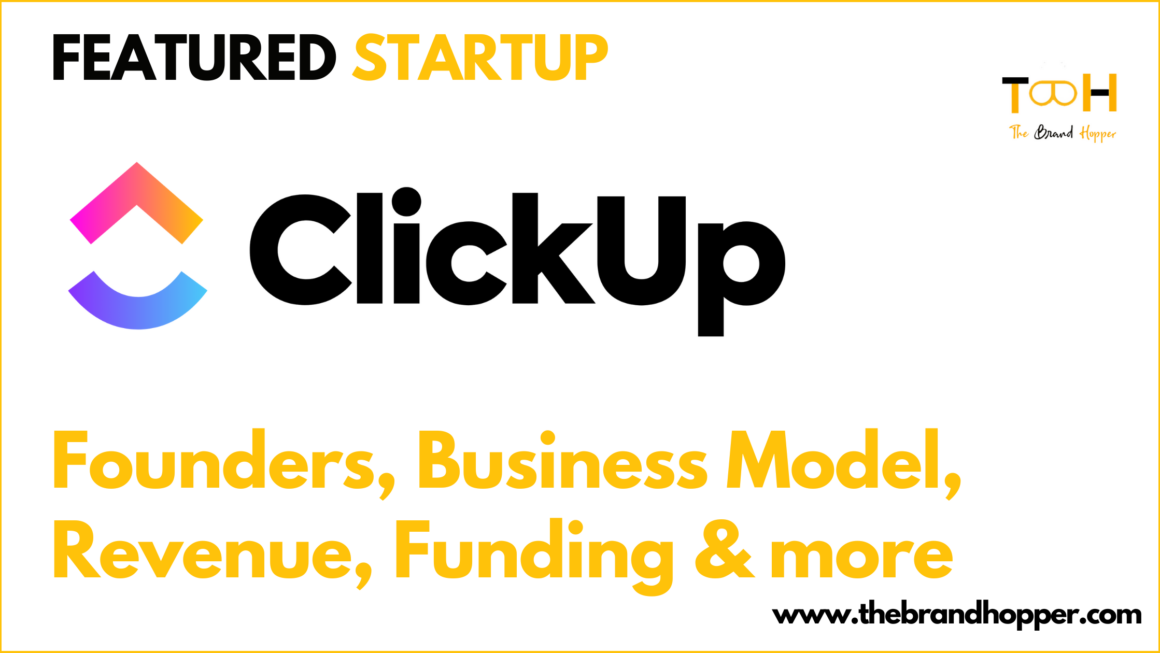Tempus is an innovative and groundbreaking startup that is revolutionizing the field of healthcare through its cutting-edge technology and data-driven approach. Founded in 2015 by Eric Lefkofsky, Tempus aims to transform the way cancer care is delivered by harnessing the power of big data and artificial intelligence (AI). With a mission to improve patient outcomes and accelerate research and development in oncology, Tempus has emerged as a leading player in the healthcare industry. In this article, we’ll explore the startup story, founders, business model, products & features and growth story of Tempus Labs.
Tempus operates at the intersection of technology, genomics, and clinical data. Its platform collects, organizes, and analyzes vast amounts of clinical and molecular data, including electronic health records, genomic sequencing data, and medical imaging. By applying advanced analytics and machine learning algorithms, Tempus extracts valuable insights from this data, empowering healthcare providers and researchers with actionable information to make more informed treatment decisions.
The company’s platform enables healthcare professionals to access and analyze comprehensive patient data in real-time, allowing for more personalized and precise treatment plans. Tempus’ AI capabilities can identify patterns and correlations within the data, uncovering potential biomarkers, therapeutic targets, and predictive models that can aid in the development of novel therapies and improve patient outcomes.
Tempus has also forged numerous partnerships with leading healthcare institutions, research organizations, and pharmaceutical companies. These collaborations allow for the integration of additional datasets, facilitating a broader and more holistic understanding of cancer biology, treatment efficacy, and patient response. By combining diverse datasets, Tempus aims to accelerate research and clinical trials, ultimately leading to the development of more effective treatments and targeted therapies.
Beyond its impact on individual patient care, Tempus is contributing to the advancement of precision medicine and the future of healthcare. The company’s efforts in aggregating and analyzing vast amounts of data have the potential to reshape the entire healthcare ecosystem, inform policy decisions, and drive breakthrough discoveries.
With its visionary leadership, cutting-edge technology, and commitment to improving cancer care, Tempus has garnered significant attention and accolades within the healthcare industry. The company has attracted substantial investments from prominent venture capital firms, positioning it for continued growth and innovation.
Tempus is a transformative force in the healthcare landscape, leveraging data, technology, and AI to unlock the full potential of precision medicine. By harnessing the power of data-driven insights, Tempus is driving advancements in cancer care, empowering healthcare providers, and revolutionizing the way we understand and treat one of the world’s most devastating diseases.
Founding History and Founders of Tempus
Tempus was founded in 2015 by Eric Lefkofsky, along with his longtime business partner Brad Keywell. The company was born out of Lefkofsky’s personal experience with the challenges faced by his wife during her cancer treatment. Fueled by a desire to improve cancer care through data-driven insights, Lefkofsky set out to build a company that could harness the power of technology and data to transform the field of oncology.

Eric Lefkofsky is a seasoned entrepreneur and philanthropist with a remarkable track record of success. He co-founded several high-profile companies, including Groupon, a global e-commerce marketplace, and Uptake Technologies, an industrial AI and analytics platform. Lefkofsky’s entrepreneurial journey began with the creation of InnerWorkings, a print procurement company that went on to become a publicly traded company. His experience in building and scaling technology-driven businesses, combined with his personal motivation to address the complexities of cancer care, positioned him as the driving force behind Tempus.
Brad Keywell, a long-time collaborator and co-founder of Groupon and Uptake Technologies, joined Lefkofsky as a co-founder of Tempus. Keywell brings a wealth of entrepreneurial experience and expertise in building successful companies. His strategic acumen and vision have played a vital role in shaping Tempus’ business strategy and driving its growth.
Together, Lefkofsky and Keywell assembled a talented team of scientists, data engineers, and technologists to tackle the challenges in cancer care. Their shared vision was to leverage advanced technologies, such as artificial intelligence and machine learning, to analyze vast amounts of clinical and molecular data and generate actionable insights that could revolutionize cancer treatment and research.
Since its founding, Tempus has rapidly gained recognition and attracted significant investments. The company has secured substantial funding from prominent venture capital firms, including New Enterprise Associates, Revolution Growth, and T. Rowe Price. This financial backing has allowed Tempus to expand its operations, invest in cutting-edge technology infrastructure, and forge strategic partnerships with leading healthcare institutions and pharmaceutical companies.
Under Lefkofsky’s leadership, Tempus has established itself as a leader in the field of precision medicine. The company’s relentless focus on harnessing the power of data to drive better patient outcomes and accelerate research has earned it numerous accolades and partnerships. Tempus has collaborated with renowned medical centers, including the Mayo Clinic, Cleveland Clinic, and Duke University School of Medicine, to integrate their clinical and molecular data into its platform. These collaborations have enhanced Tempus’ ability to analyze comprehensive datasets and generate insights that have the potential to transform cancer care on a global scale.
Eric Lefkofsky’s dedication to improving cancer care extends beyond Tempus. In 2016, he and his wife Liz also established the Lefkofsky Family Foundation, a charitable organization that focuses on supporting initiatives in education, human rights, medical research, and the arts. The foundation has made significant contributions to cancer research and patient care, further solidifying Lefkofsky’s commitment to making a meaningful impact in the fight against cancer.
Through his entrepreneurial drive, passion for innovation, and commitment to improving cancer care, Eric Lefkofsky has led Tempus on a mission to transform the field of oncology. With a visionary founder at the helm and a talented team driving technological advancements, Tempus continues to make strides in harnessing the power of data and technology to unlock new insights and approaches in cancer treatment and research.
Products & Features of Tempus
Tempus offers a range of innovative products and features that leverage advanced technology and data analytics to transform cancer care and research. These products and features empower healthcare providers, researchers, and pharmaceutical companies with valuable insights and tools to improve patient outcomes and accelerate advancements in oncology. Let’s explore some of the key offerings of Tempus:
Clinical Data Analytics: Tempus collects and analyzes vast amounts of clinical data, including electronic health records (EHRs), pathology reports, and medical imaging. Its proprietary data analytics platform utilizes natural language processing and machine learning algorithms to extract structured data from unstructured medical records. This enables healthcare providers to gain deeper insights into patient characteristics, treatment patterns, and outcomes, facilitating personalized and evidence-based care.
Genomic Sequencing and Analysis: Tempus utilizes genomic sequencing technology to analyze a patient’s tumor DNA and identify genetic alterations that may be driving the cancer. By combining genomic data with clinical information, Tempus helps healthcare providers make informed decisions regarding targeted therapies, clinical trial eligibility, and treatment options tailored to a patient’s specific genetic profile.
Molecular Profiling: Tempus conducts molecular profiling of tumor samples, examining the expression levels of various genes, proteins, and biomarkers. This information provides insights into the biological characteristics of the tumor and helps guide treatment decisions. Molecular profiling can identify potential therapeutic targets, predict treatment response, and aid in the development of personalized treatment strategies.
Real-Time Data Access: Tempus offers a secure and intuitive platform that allows healthcare providers to access patient data in real-time. This comprehensive view of patient information, including clinical data, molecular profiles, and treatment history, enables clinicians to make timely and well-informed decisions. Real-time data access promotes collaboration among healthcare teams, enhances care coordination, and improves treatment outcomes.
Data-driven Clinical Decision Support: Tempus leverages its vast database and advanced analytics capabilities to provide data-driven clinical decision support. The platform offers evidence-based treatment recommendations, considering factors such as patient characteristics, genomic profiles, and the latest scientific research. This assists healthcare providers in selecting the most effective treatments and therapies for individual patients.
Clinical Trial Matching: Tempus assists in matching eligible patients with relevant clinical trials based on their unique clinical and genomic profiles. By analyzing patient data and trial criteria, Tempus identifies potential matches, enabling healthcare providers to offer patients access to cutting-edge therapies and contribute to the advancement of medical research.
Data Integration and Interoperability: Tempus integrates data from various sources, including EHRs, genomic sequencing results, and medical imaging, into a unified platform. This enables healthcare providers to access and analyze comprehensive patient information from a single interface, improving workflow efficiency and reducing data fragmentation. Tempus also prioritizes interoperability, allowing seamless integration with existing healthcare systems and workflows.
Research Collaboration and Partnerships: Tempus collaborates with leading academic institutions, research organizations, and pharmaceutical companies to drive scientific discoveries and innovation in oncology. These partnerships facilitate data sharing, enable large-scale research initiatives, and foster collaboration among experts in the field. By leveraging collective knowledge and resources, Tempus accelerates research and development efforts, leading to improved treatments and outcomes for cancer patients.
Through its comprehensive suite of products and features, Tempus empowers healthcare providers and researchers with advanced tools and insights to deliver personalized and data-driven cancer care. By harnessing the power of technology and data analytics, Tempus is revolutionizing the way cancer is diagnosed, treated, and understood, with the ultimate goal of improving patient outcomes and transforming the landscape of oncology.
Business Model of Tempus : How does Tempus make money?
Tempus leverages data analytics, machine learning, and genomic sequencing to help physicians personalize cancer treatment decisions for patients. Unlike traditional biotechnology companies focused solely on drug discovery or device manufacturers, Tempus operates under multiple complementary business models, generating income from numerous sources:
Partnership Fees: Tempus forms long-term alliances with hospitals, clinical centers, foundations, pharmaceutical companies, and patient advocacy groups to jointly develop cutting-edge approaches to fighting cancer. These collaborations might involve knowledge exchange, research funding, technology integration, co-branded initiatives, or data sharing agreements. In return, Tempus receives one-time set-up fees, milestone payments, royalties, licensing revenues, or regular service fees, depending on the nature of the arrangement.
Data Analytics Services: As Tempus acquires vast amounts of medical records, molecular profiles, and outcome data from diverse sources, it creates proprietary algorithms for advanced analysis tailored to particular tumor types or therapeutic categories. Hospitals, cancer centers, or individual practitioners can purchase access to this valuable data insights via annual subscriptions or per-use arrangements.
Artificial Intelligence-Driven Tools: By combining natural language processing, computer vision, and machine learning techniques, Tempus builds AI tools intended to enhance diagnostics accuracy and improve care coordination between oncologists, pathologists, radiologists, primary care doctors, specialty pharmacists, and nurses. These digital instruments are either offered directly or integrated with existing electronic health record (EHR) platforms and sold as part of larger software suites or standalone products to both healthcare institutions and individual users.
Genomic Sequencing Services: One of Tempus’ key competencies lies in its ability to perform panomic profiling and next-generation sequencing of tumors. Tempus can offer these services to clinicians across different countries by establishing partnerships with regional laboratories, biobanks, reference genome repositories, and local governments interested in advancing precision medicine practices. This approach also enables Tempus to better understand variations in gene mutations and drug responses based on ethnic background or geographic location, leading to further refinement of decision support tools.
Machine Learning-Enabled Drug Discovery: Besides focusing on the application of AI for patient stratification, therapy optimization, and real-world evidence gathering, Tempus invests heavily in basic science research aimed at identifying new drugs tailored to specific molecular signatures. Through collaboration with biopharma startups, academic labs, venture capital firms, and contract research organizations, Tempus intends to create promising compounds targeting previously unexplored mechanisms or addressing rare diseases with limited treatment options. By taking a share of licensing revenues or equity stakes in successful spin-offs, Tempus can diversify its business portfolio beyond recurring service fees.
Direct-to-Consumer Personalized Nutritional Supplements: In light of increasing evidence linking nutrition to cancer development and response to conventional treatments, Tempus has announced plans to launch consumer-facing products related to anti-inflammatory diets, immune function modulation, microbiome restoration, and metabolic support. Building upon its robust dataset of molecular markers influencing metabolism, inflammation, oxidative stress, and epigenetic regulation, Tempus will develop nutraceutical formulas adaptable to unique needs determined via saliva DNA testing, blood microbiota assessment, or self-reported symptoms.
While this line of products may not generate substantial profit margins compared to enterprise solutions or R&D activities, it could serve as an additional touchpoint connecting Tempus to individuals outside institutional care settings and fostering brand recognition among potential future clients within hospital systems, managed care networks, or referring physician offices.
Health Economics Research: Another way Tempus generates revenue involves conducting cost-effectiveness analyses, comparative effectiveness studies, value-based payment design simulations, and payer negotiations. Since Tempus accumulates significant real-world evidence showcasing how its integrated platform leads to improved outcomes at lower costs, the company can monetize this know-how by consulting and advising government agencies, private payers, provider networks, and employer coalitions seeking strategies to optimize their spending while enhancing population health management. By developing methodologies for translating big data insights into actionable policy recommendations, Tempus reinforces its reputation as a thought leader committed to value-driven innovation in healthcare. Moreover, participating in public discourse on value-based frameworks encourages the adoption of more favorable reimbursement models conducive to widespread implementation of Tempus’ technological assets in health systems worldwide.
Overall, Tempus’ business model centers around leveraging advanced technology, data analytics, and strategic partnerships to generate valuable insights, drive research collaborations, and improve cancer care. By providing a powerful platform, data-driven insights, and a range of services, Tempus delivers tangible value to its customers while creating revenue streams that sustain its growth and innovation in the field of precision medicine.
Growth of Tempus over the years
In 2016, Tempus had 100 customers and performed 10,000 tests. By 2020, the company had grown to 500 customers and performed 500,000 tests. And in 2022, Tempus had over 1,000 customers and performed over 1 million tests.
Tempus’s growth is being driven by a number of factors, including the increasing demand for genomic sequencing services, the company’s strong customer base, and its continued product innovation.
The global genomic sequencing market is expected to grow at a compound annual growth rate (CAGR) of 21.2% from 2022 to 2028. This growth is being driven by a number of factors, including the increasing prevalence of cancer and other diseases that can be diagnosed through genomic sequencing, the growing number of clinical trials that are using genomic sequencing, and the increasing demand for personalized medicine.
Tempus has a strong customer base of over 1,000 healthcare providers and researchers. These customers are drawn to Tempus’s cloud-based platform, which offers a wide range of genomic sequencing and analysis services, including:
- Whole genome sequencing
- Whole exome sequencing
- Targeted sequencing
- Molecular diagnostics
- Clinical trial support
Tempus is also continuing to innovate its product offerings. In recent years, the company has launched a number of new services, including:
- A cancer screening test that can detect 32 types of cancer
- A test that can predict the risk of developing Alzheimer’s disease
- A test that can help to personalize cancer treatment
Tempus’s growth is a testament to the company’s strong product offerings, its focus on customer satisfaction, and its commitment to innovation. The company is well-positioned to continue its growth in the years to come.
Here are some additional growth numbers for Tempus:
- Revenue: $210 million in 2022
- Employees: 1,500
- Offices: 10 in the United States and Europe
- Partnerships: Over 500 healthcare providers and researchers
Tempus is a rapidly growing company that is making a significant impact on the healthcare industry. The company’s continued growth is a testament to its strong product offerings, its focus on customer satisfaction, and its commitment to innovation.
Also Read: The Pristyn Care Story: Taking Healthcare to the Next Level
To read more content like this, subscribe to our newsletter




